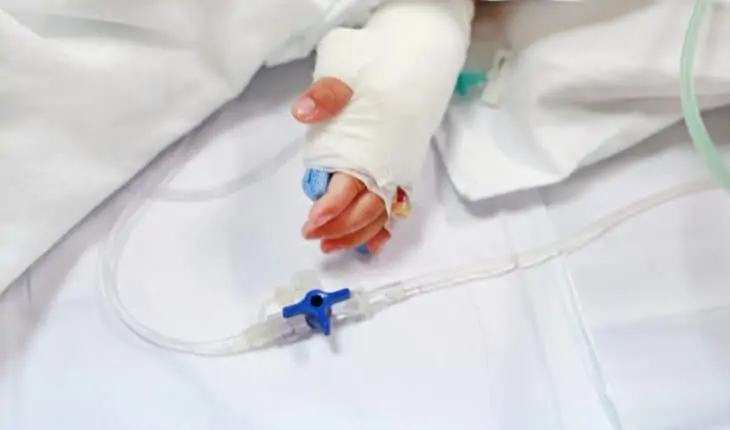Chemotherapy with fewer side effects may be on the way: A discovery by University of Queensland pain researchers may allow some future cancer patients, including children with leukaemia, to avoid their chemotherapy’s worst and most debilitating side effects.
Professor Irina Vetter and Dr Hana Starobova thought “turning off” the inflammation that is one of the body’s natural reactions to the chemotherapy drug vincristine might reduce its accompanying pain and unpleasant symptoms.
“We found the anti-inflammatory drug anakinra substantially reduced the awful nerve symptoms for which vincristine chemotherapy is known,” Professor Vetter said.
“Importantly, it did not reduce the effectiveness of the chemo.”
Anakinra is an existing rheumatoid and juvenile arthritis treatment and the Institute for Molecular Bioscience researchers plan to test it soon on human chemotherapy patients taking vincristine.
“Vincristine is used to treat cervical, brain and lung cancers, leukaemia and non-Hodgkin’s lymphomas,” Professor Vetter said.

Professor Irina Vetter
She said the finding was specific to vincristine and anakinra, although early findings suggested anakinra may help relieve symptoms of some other chemotherapy drugs.
“Unfortunately chemo’s side effects are sometimes so terrible that people interrupt their treatment or end it, putting them at risk of succumbing to their cancer,” Professor Vetter said.
“Reducing the chemo’s unpleasant symptoms ultimately will save lives and a lot of patient suffering.”
The Kids’ Cancer Project part-funded the research and the charity’s chief executive, Owen Finegan, said the researchers’ choice to test a known and approved drug meant relatively fast translation to clinical use.
“This discovery will flow through to patients much more quickly than if the researchers had developed a completely new drug,” he said.
“This is likely to bring better treatment for kids with cancers including acute lymphoblastic leukaemia, sarcoma, medulloblastoma and neuroblastoma.
“We are delighted that these findings – initiated to help children – will also benefit adults.”
The researchers made the discovery while studying how vincristine causes sensory nerves to function abnormally.
Dr Starobova said neuropathy was one of the chemotherapy drug’s most unpleasant and severe side-effects, causing tingling and numbness in hands and feet, pain, and muscle weakness leading to limping.
“Unfortunately these symptoms can persist long after treatment,” Dr Starobova said.

Dr Hana Starobova
“The only way to ease them is to lower the vincristine dose, but this lowers the treatment’s effectiveness against the cancer.
“Where chemotherapy is concerned, neuropathic pain results from immune cells infiltrating the nerves and inflammation running wild.”
Claire Bermingham of Lennox Head said her son Archer, 4, still suffered from his 2019 vincristine treatment for leukaemia and doctors estimated the side-effects would last eight years.
“Archer has peripheral neuropathy, foot drag, headaches, jaw pain and occasional raspy voice,” Mrs Bermingham said.
“He can’t take stairs, hold a pen, write his name, use scissors or do lots of other things children his age can do.
“People think once treatment is over and the cancer is in remission, that it’s all over – that’s not the reality.”
Mrs Bermingham said she was delighted to hear about the discovery at the Institute for Molecular Bioscience.
“It’s great that researchers are prioritising kinder, gentler cancer treatments for children,” she said.
Professor Vetter said inflammation was a natural response in the body to injury or infection, but unchecked it could cause its own issues.
Since the finding, she and Dr Starobova have joined forces with their IMB colleague and inflammation expert Professor Kate Schroder.
“Kate’s group focuses on inflammasomes – the molecular machines that trigger the immune response,” Professor Vetter said.
“Working together allows us to accelerate this research.”
Their next step will focus on how vincristine activates immune cells.
The research is published in the Journal of Experimental Medicine and funded by the NHMRC.
Anakinra is a biological Disease-Modifying Antirheumatic Drug (bDMARD), a therapeutic class of cytokine blockers that came into use in the 1990s.
- Breaking the ice for men’s mental health - 26th December 2025
- New bowel cancer test for early detection - 26th December 2025
- New method accelerates resistance testing in UTIs - 26th December 2025







